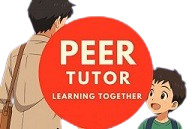Smart Reading: Two Approaches; One for Essays, One for Quizzes
When it comes to academic success, how you read matters just as much as what you read. Whether you’re preparing to write an essay or gearing up for a quiz, the strategies you use should match the task. Here’s how to read with purpose and power in both situations.
Reading to Write an Essay
Writing a great essay starts before your fingers ever touch the keyboard. It begins with intentional reading. Here’s a step-by-step guide:
- Plan Your Essay First
Before diving into your book, outline your essay. Identify your main topic and break it down into subtopics or sections. This gives your reading direction. - Skim for Relevant Content
Now, scan through the book or material, looking specifically for sections that relate to your subtopics. You don’t need to read everything just what’s useful. - Summarize Key Points
As you read, write short summaries or bullet points of the most important information. Focus on facts, arguments, and examples that support your essay’s goals. - Organize Your Summaries
Match your notes to your essay outline. This helps ensure your ideas flow logically and your writing stays on track. - Start Writing
With a clear structure and evidence in hand, your essay practically writes itself. You’re not just writing you’re building on a strong foundation.
Reading to Take a Quiz
Quiz prep requires focused, active engagement with the material. Here’s how to make your study time effective:
- Preview the Material
Begin by scanning the chapters that will be tested. Look at headings, summaries, and any available past questions related to the topic. - Active Reading
Don’t just read engage. Take notes, ask questions, make connections, and even read aloud to stay focused and absorb information better. - Connect Ideas
Link new concepts to things you already know. This strengthens your understanding and helps with long-term retention. - Take Notes That Matter
Focus your notes on key terms, definitions, and big-picture ideas. Highlight cause-effect relationships, timelines, and examples. - Review and Self-Test
After reading, test yourself. Use flashcards, try to summarize without looking, and take practice quizzes. The goal is to shift from reading to remembering.
Conclusion
Reading is more than scanning words it’s a skill. When you tailor your reading approach to your academic goal, whether it’s writing or testing, you not only understand more but perform better. So the next time you open a book, ask yourself: Am I reading to write or reading to quiz? Let the purpose guide the process.
